"Yes, globalization. For many people, that word conjures up, at best, images of container ships moving manufactured goods from far-flung factories. At worst, it harkens back to acrid debates about trade deficits, currency wars and jobs moving to China. In fact, since the Great Recession of 2008, the global flow of goods and services has flattened, and cross-border capital flows have declined sharply. But globalization overall isn't on the wane. Like so much in our world today, it has reinvented itself by going digital."
Tags: technology, globalization, diffusion, industry, economic.



 Your new post is loading...
Your new post is loading...

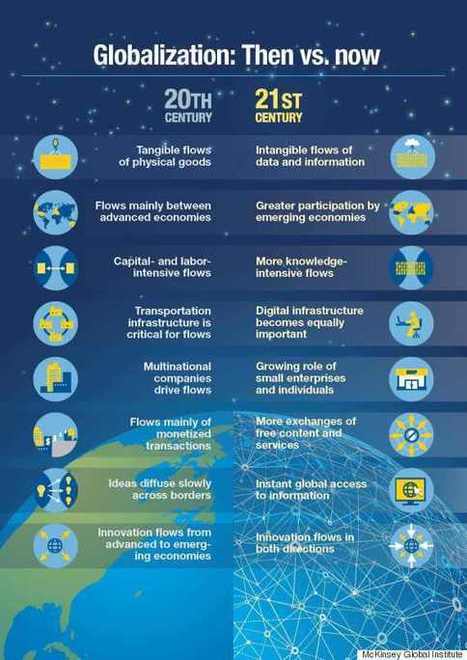

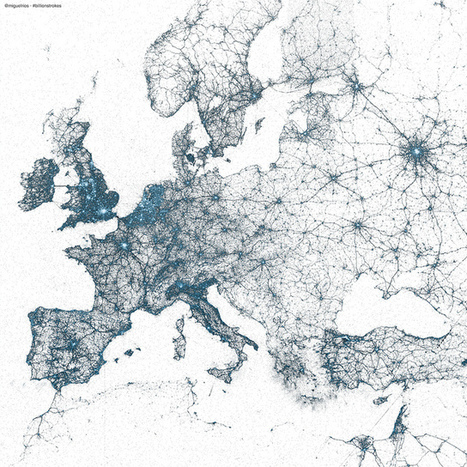









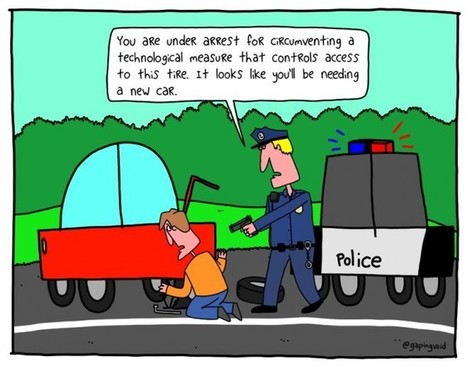
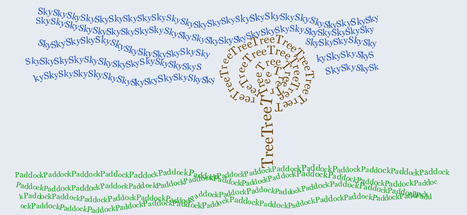

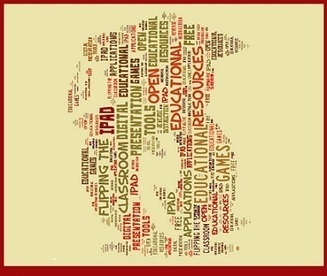


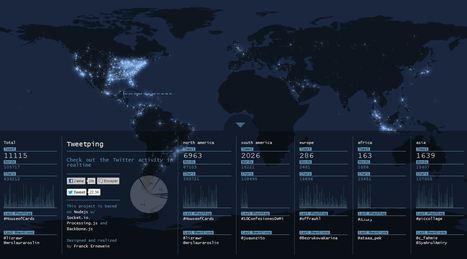








This chart is pretty straight forward, yet it clearly lays out the difference between 20th and 21st century Globalization patterns. Through modern invention and progress in technology the world has become a place where connections can be created at the speed of light. Through technology, the world no longer has to wait for the physical movement of goods and ideas, at the touch of a button information can be in anyone's hands